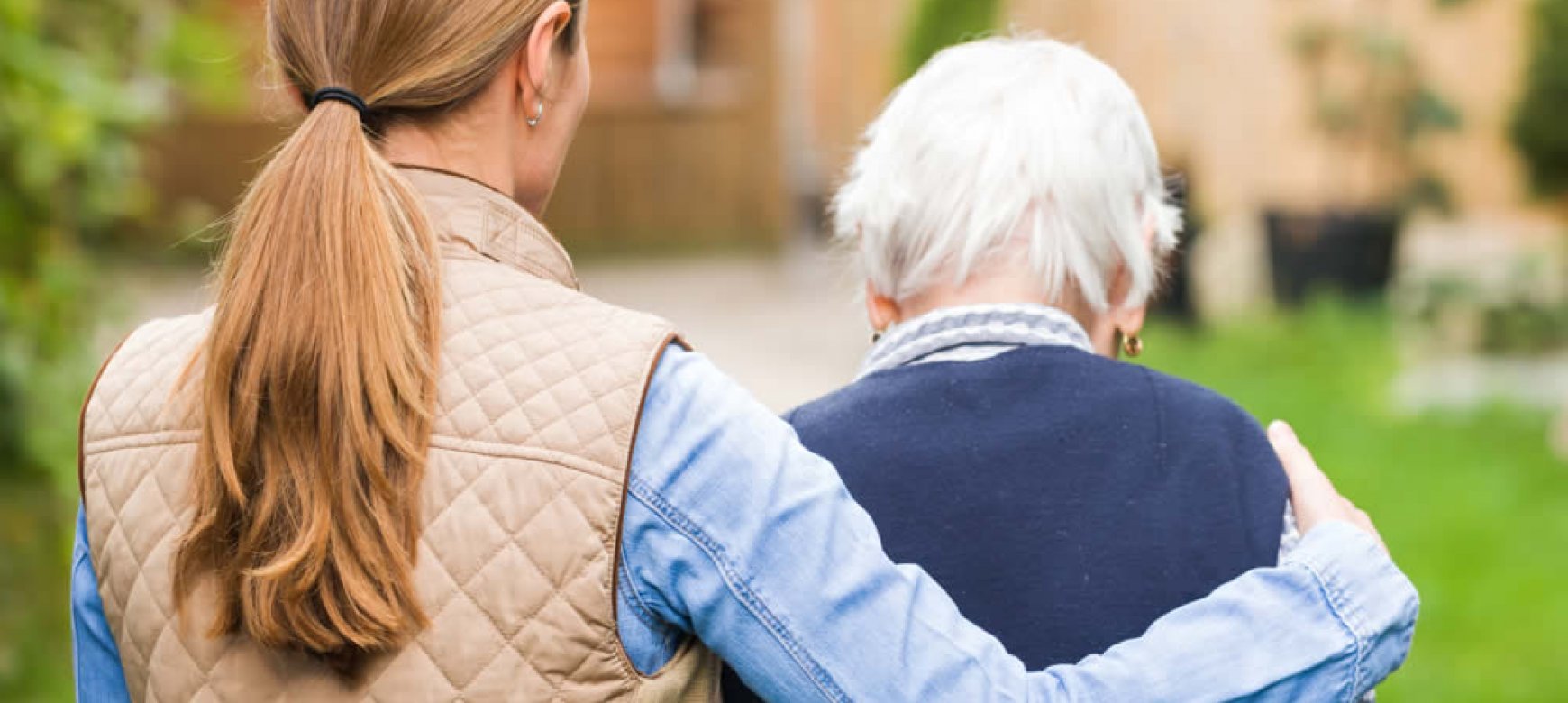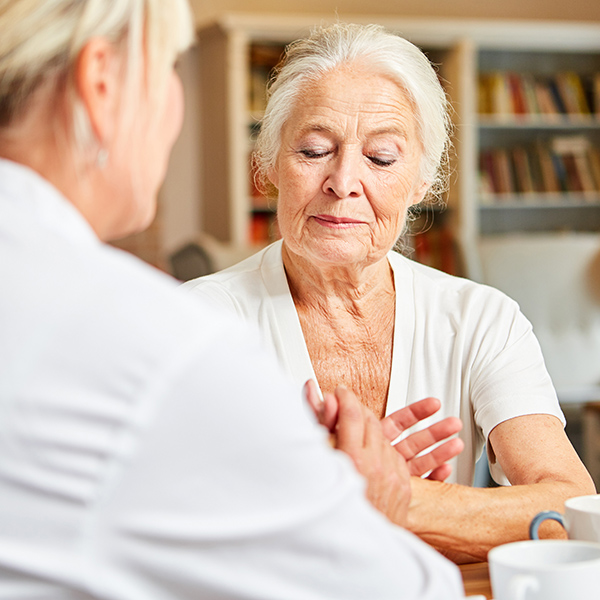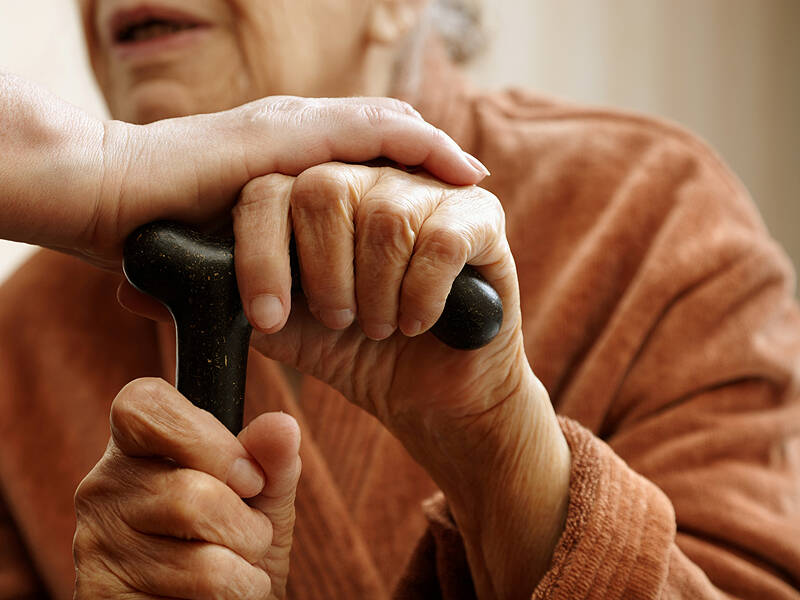
Taking care for an elderly person at home is a very rewarding experience, but it can also present several challenges in the absence of adequate preparation.
When the care is addressed to our parents or grandparents, the people who raised us with love, this act is charged with an additional sense of moral obligation. Once it is necessary, it should be provided in the best possible way to ensure the well-being and good health of both the people we love and ourselves who provide it.
So if you already take care for or are about to take care for an elderly person, it's good to know what tools you will need and how you will manage this situation overall to ensure optimal living for your loved ones and yourself.
Ideally for both you and your loved ones, it's good to have started a dialogue long before they need your help. So if you have this window of time ahead of you, plan ahead. Thoroughly discuss some future scenarios in which your care will be unavoidable and give them options so they have a say in the final decisions. This is not an easy conversation, but this stage will make the rest of the process much more manageable for both you and them.

There are elderly people who doubt that they need help even though the signs indicate otherwise. Such behavior can lead to unwanted conflicts, without achieving any result.
Be your loved one's ally by trying to find the cause of their denial, so you can approach them appropriately and help them make decisions for themselves.
Turn to people he/she trusts and values, and together try to relax this defense by making suggestions in which he will have the right to choose. Offer him/her gradual changes, such as helping out just a few hours a day with a person of his choosing, or try a trial period where he/she can point out things he/she liked or didn't like.
If this approach fails, you can always seek the help of someone with similar experience or turn to a psychologist, who will guide you step by step.
Practically, the most difficult and demanding part of home care is handling the daily activities of the person receiving help. Procedures such as going to the toilet, bathing, dressing, which for other people are simple, can become a challenge for a person with mobility difficulties. Invest in products that can make these processes much simpler for you and your loved one.
The majority of older people experience some form of incontinence. For mild incontinence, it is good to get a good quality panty diaper that protects against leaks, reduces odors and is absorbent enough to not cause irritation from prolonged use. Suggest him/her use a day diaper as well as a night diaper for a restful sleep. Don't forget to supply him/her with disposable cleaning wipes. A pocket pack can come in handy for everyday activities, while a pack on his/her nightstand can make it easier at night.
Install a bath chair in his/her shower or bathtub. This way it will be able to support himself/herself and you will have your hands free for the sponge and the soap. Use the sink when you are only going to wash his/her hair and be sure to use products such as a hypoallergenic soap that won't irritate sensitive skin.
Make sure you always have some mild skin protection cream available to prevent or treat any irritation. Buy clothes that are loose fitting so they don't make his/her daily activities difficult.
Prefer cotton fabrics that allow the body to breathe while keeping it clean to avoid any skin inflammations or fungal infections, etc.
Whatever the space in which your loved one will live, whether it is their home, or a room of your own house, it would be good if its arrangement could facilitate your daily life. Remove furniture that hinders movement as much as possible and keep surfaces such as tables, bedside tables, toilet counters, etc. clear of small objects. This way, you reduce the risk of accidents and ensure the hygiene of the area for a longer time. Moreover, you also reduce the time you would spend on cleaning and organize the space more easily so that it is functional.
Organization is a key to coping more easily on a daily basis and can save you a lot of time.
Buy a reliable electronic sphygmomanometer to measure blood pressure as well as a blood glucose meter and avoid unnecessary trips to the pharmacy.
Get a daily or weekly pill case and organize his/her daily medication to avoid missing a dose or overdosing.
Prepare for an emergency situation by keeping emergency telephone numbers (hospitals, doctors, close relatives, etc.) within reach of both you and the elderly person.
Make a weekly schedule of tasks that need to be done, in terms of house maintenance and cleaning, doctor's appointments, etc.
A person who is not able to take care of himself/herself entirely can experience a feeling of cancellation or failure, especially when it comes to a person who is used to being independent and helping his/her family.
That's why it would be good to be able to include your elderly relative in the daily household chores, emphasizing to him/her how important his/her help is to you.
Tasks such as cooking, gardening, setting the table for lunch, may seem trivial but can have a tremendously positive effect on the psychology of an elderly person, reminding them that they can still be useful.

Exercising the body as well as the spirit, when possible, is considered necessary even in old age. Encourage your loved one (as long as they don't have severe mobility issues) to walk as often as possible, visit friends and keep their mind alert by reading books, doing crossword puzzles and generally doing an activity that helps keep the brain healthy.
Whichever way you decide to embark on this journey, arm yourself with patience and always keep in mind that this is an act of selflessness. Don't forget to remind your loved ones that they are not alone, express your gratitude and love to them and try to maintain a positive attitude towards life so that they too remain optimistic.